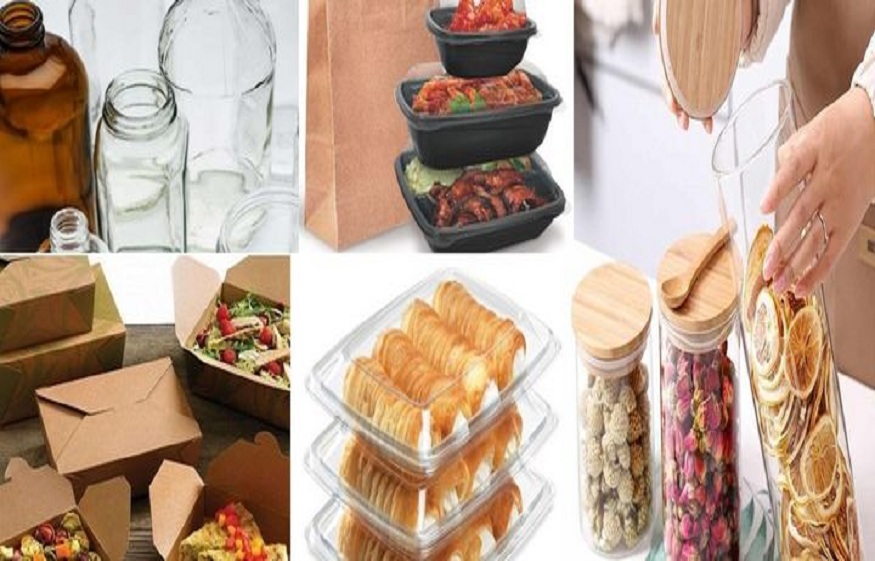Food packaging is an important step in maintaining food freshness, safety, and appeal. All firms depend on the right packaging to maintain their freshness, gain customers, and obtain food safety measures. The right packaging also eliminates wastage, increases shelf life, and adds convenience to consumption. It is not only a matter of buying supply but also a matter of quality, safety, and sustainability while buying the best quality from food packaging products manufacturers. The incorrect manufacturer can cause improper packaging, loss of goods, and damage. Companies must make a serious study of numerous considerations before selecting a supplier of packaging.
- Role of High-Quality Packaging: Poor-quality materials result in contamination, spoilage, and health risks. Top-quality packaging companies utilize food-grade materials that will not produce any chemical reaction with foods or leach harmful chemicals. They also make them watertight, bacteria-proof, and contaminants-proof from the exterior. Tight lids, heavy-lidded pots, and leakage-proof designs prevent foods from spoilage during shipping to consumers. Defects in packaging lead to recalls and lower the reputation of a company. This is the reason why companies need to employ producers of good quality packaging material and rigorous safety protocols.
- Learn Various Packaging Materials: Various packaging materials with varying properties are available. Some of the most popular ones are plastic, glass, metal, paper, and biodegradable ones. Plastic is lightweight and cannot be broken easily, whereas glass is classy to touch but breakable. Metal cans would be best for long-term storage, and paper products are environmentally friendly. Various materials need to be present within companies so that various kinds of food products can be accommodated. Material selection should be done based on the nature of the food, shelf life, and degree of sustainability.
- Compliance with Industry Regulations: Packaging food is to adhere to very rigid standards of safety and cleanliness. The standards vary from nation to nation so that the packaging does not become unhealthy in any way. The large-scale producers abide by international standards of food safety, get certified, and undergo regular quality tests. They ensure that their products are BPA-free, non-toxic, and safe for direct food contact. There must be a company guarantee that the manufacturer they choose to use has the proper standards and an upper record of conformity. Failing to achieve such awareness would result in legal action and damage to a brand image with the consumers.
- Opportunities for Branding and Customisation: Firms stand out from other firms through customized packaging. Quality firms offer customized services like printing logos, special designs, and customized packaging solutions. Beautiful packaging makes branding and stimulates people to buy more. Various foods require different packaging, i.e., reseal pouches, microwave bowls, and vacuum packets. Flexibility in customization enables companies to have the packaging set up in a way that is suitable for their business brand and customer requirements. It can also create sales and customer satisfaction if it is from a company that provides branding possibilities.
- The Rise of Sustainable Packaging: Most companies have settled on green packaging solutions since they want to save the world. Green packaging materials with reusable, biodegradable, and compostable products reduce waste and respond to calls for green products. Major food packaging companies provide sufficient green packaging material with functionality and strength preserved. Green packaging companies save the planet along with gaining green consumers. Firms must remain updated with green technology to provide enhanced packaging facilities.
- Bulk Buying and Wholesale Offers: If firms require bulk quantities of packaging, bulk buying is a necessity. It is economical to have a producer in order to get the best deals for food packaging supplies wholesale. Unit prices are lowered with bulk orders, and the supply chain is less affected. Reliable manufacturers deliver quality on time, varying order sizes, and fair unit prices. Packaging inventory can impact production and sales, so the search needs to be initiated for a manufacturer who will take bulk orders. Businesses must consider the pricing format, material lead time, and minimum order before a vendor is finally chosen.
- Food Packaging Innovation: Packaging evolves with technological innovation, new materials, and new shapes. New and innovative food packaging keeps on enhancing the safety of food, shelf life, and customer convenience. Intelligent packaging, resealable caps on packaging, vacuum-sealing technology, and temperature-reporting labels are being popular more and more. Major manufacturers spend on research and development to offer new packaging solutions. Organizations should adapt to makers of a culture of innovation to ensure they are responsive to the market and increase the packaging level.
- Safe Storage and Transport Protection: Packing food should be resilient enough to sustain transport as well as storage conditions. Failure of packages during transportation results in food and money loss. Packagers should provide leak-proof, temperature-proof, and shock-proof packaging. Proper packaging avoids external contamination and maintains food freshness. Firms should negotiate storage and transportation terms before packaging material with manufacturers. Absorbent products like cushioned pads, vacuum packaging, and solid boxes reduce handling and transit damage.
- Assessing Manufacturer Credibility and Reputation: Firms must inquire about customer testimonials, company history, and trustworthiness before making a decision. A good manufacturer with an excellent reputation for timely delivery, good customer relationship, and quality is preferable over one that finds itself in the news daily because of complaints. Past customer feedback questions, certification, and case studies will show details about the credibility of the manufacturer. A good manufacturer emphasizes long-term relationships and constantly delivers quality packaging solutions.
- The Right Business Manufacturer: Each business has unique packaging requirements depending on its commodity, price point, and branding objectives. The selection of the appropriate manufacturer is all about balancing customization, price, material, and reliability. The best manufacturer is one that provides flexible solutions, high quality, and dependable customer service. Companies should, in particular, specify what they require from the package and make the manufacturer leave room for special requirements on their side. There is also an intelligent choice that offers additional product protection, improved selling advantages, and consumer satisfaction as well.
In conclusion, flexible packaging today is the best choice among companies due to the light, but tough quality that makes it affordable and efficient. They are widely used by the majority of food companies as it not only saves storage space but also costs less when shipping and is very protective. flexible packaging material suppliers play a crucial role in offering flexible packaging materials that are aligned with the newest packaging trends. Businesses can make the most out of their packaging, become more efficient, and satisfy customers when they have the appropriate manufacturer.

